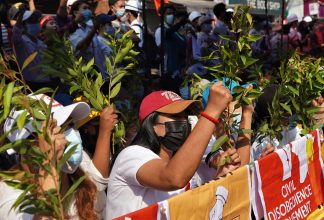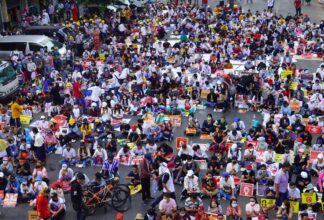Burmese Activists Refuse to Stay Silent: “End the Military Dictatorship”
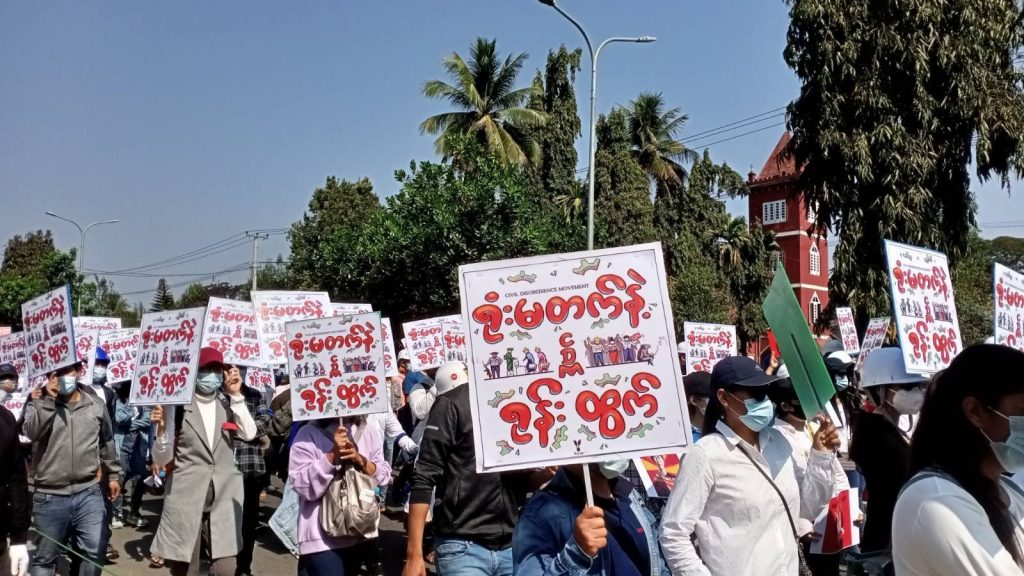
Since 1 February, millions of people have taken to the streets across Burma to protest the military coup. The demonstrations have been met with a violent military intervention with many injured and arbitrarily detained. There are also confirmed reports of protesters who have been shot dead by security forces. But despite increasing violence and repression, the street protests and civil disobedience campaign continues to grow.
In Yangoon, the mass protests have repeatedly been met with water cannons, beatings, and arrests. On Sunday, 28 February, the Burmese military launched its most deadly and violent attack since the start of the coup. The police fired into crowds in several of Burma’s largest cities, leaving at least 18 dead and 30 injured, according to the United Nations.
On 20 February, at least two people were killed during protests in Mandalay, Burma’s second largest city. One of them was Thet Naing Win, a 36-year-old carpenter, and the other was a 13-year-old boy who died at the scene. The day after, thousands of people attended the funeral of a young woman, Mya Thwe Khaing, who was shot in the head by police on 9 February. The 19-year-old was the first to be killed since these protests began.
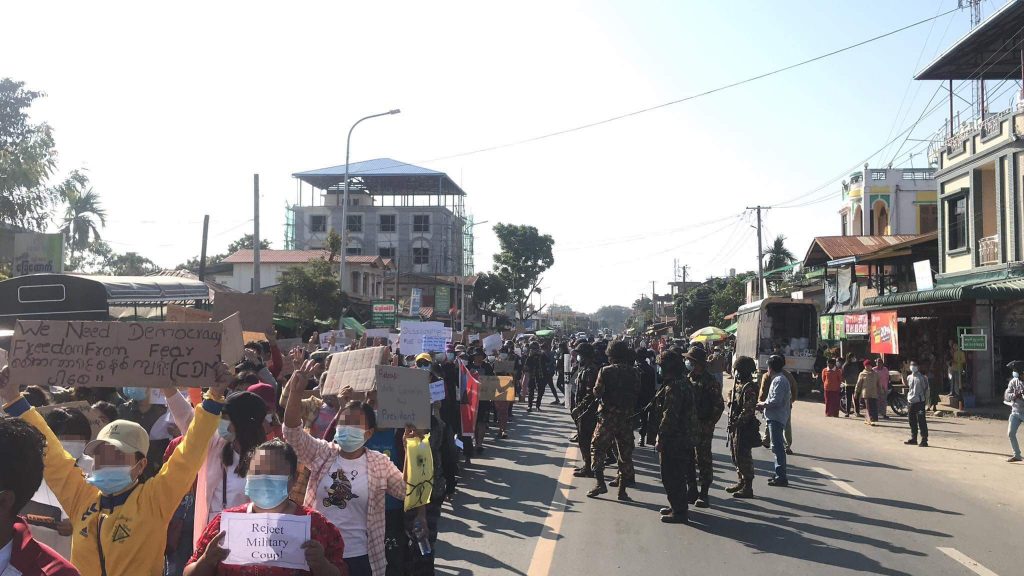
Protesters are demanding an end to the military dictatorship and the release of individuals who have been unjustly detained, including State Chancellor Aung San Suu Kyi. The former democracy icon stands accused of having imported illegal walkie-talkies, a charge which carries a maximum sentence of three years in prison.
In addition to increasing violence, basic freedoms are vanishing fast. The military regime has imposed internet shutdowns, blocked social media, criminalised online freedom of speech, and arrested journalists, activists, and other pro-democracy protesters across the country. Between 1 February and 1 March, more than 1 130 individuals have been arrested, charged, or sentenced, according to the Assistance Association for Political Prisoners. Still, human rights groups and the people of Burma show no sign of backing down. They are clear in their calls for democracy, accountability, and justice.
“The military usually does whatever it wants to”
Civil Rights Defenders recently spoke with two of our Burmese partners to get their perspectives on what is happening in Burma. One of them is Naw Ohn Hla, founder of the Democracy, Peace and Women Organization (DPWO). In 2020, she was awarded the Civil Rights Defender of the Year Award for her exceptional perseverance in the fight against oppression. After the coup, she and her colleagues have faced increased pressure.
“The day after the military coup, some members of the police and military intelligence service called me over the phone to ask, ‘what are you doing, and what are your plans?’,” said Naw Ohn Hla.
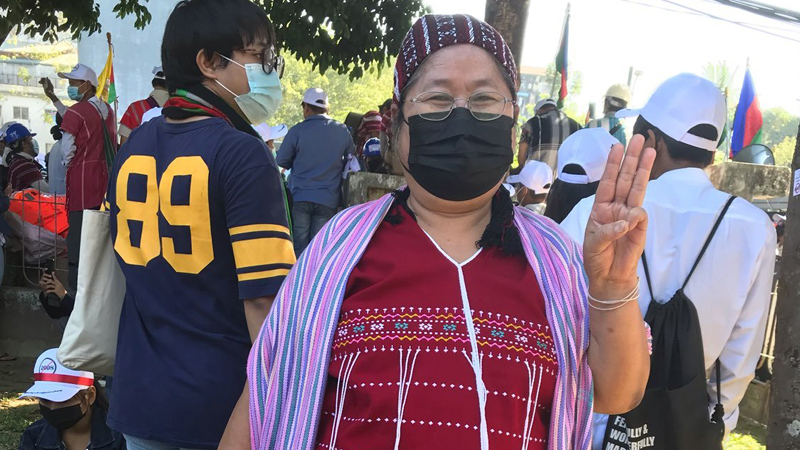
A grassroots activist for over three decades, she is a leading voice for human rights in Burma. After the coup, her organisation immediately released a statement strongly condemning the military, and two of her colleagues led the first protests in Hledan, Rangoon. On 7 February, in the middle of the night, the military and police arrived at their homes to arrest them. The activists had however gone into hiding and were never arrested.
“To this day, their homes are being monitored by military intelligences,” said Naw Ohn Hla.
Another organisation that is working actively to support the civil disobedience movement is the Kachin Women’s Association Thailand (KWAT). The organisation is well known for its human rights work in Burma, particularly focusing on the rights of ethnic minorities. Due to security concerns, the organisation currently has its headquarters in neighbouring Thailand.
“Since the Coup started, our organisation and staff have needed to be more careful about our security, as the military usually does whatever they want to do,” said Jessica Nhkum, General Secretary at KWAT.
“We are not surprised that the military has seized power”
After the election in 2015, which led to the formation of the first civilian government in decades, many hoped that Burma was on a transition to democracy. The country’s de-facto leader, Aung San Suu Kyi, and her National League for Democracy (NLD) had won the popular vote and the military needed to take one step back.
However, the 2008 constitution, which was written by the military, remained in place. Among other things, it guarantees that a quarter of the seats in parliament are reserved for the military, which gives them veto power on any change to the constitution. The way that it is written also allows the military to dissolve the parliament at any time if they consider the nation’s security to be threatened.
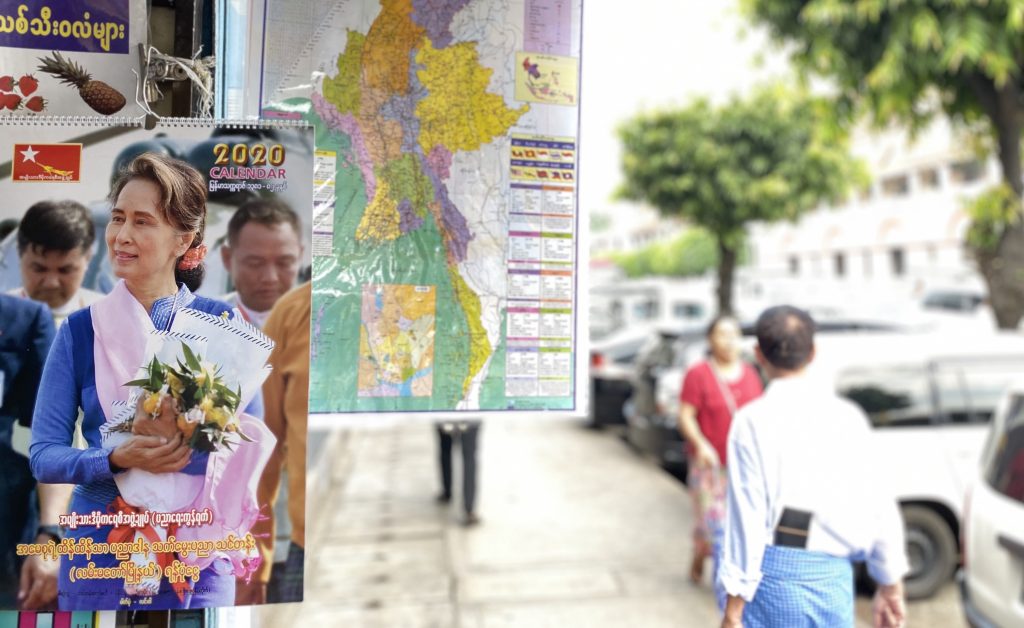
“The military’s power is guaranteed in the constitution and the coup could have happened at any time. The military has never wanted to place political power in the hands of the people. They want to control everything. Therefore, to be honest, KWAT is not surprised by the situation. This is one of the reasons why we did not move back to Burma during 2015,” said Jessica Nhkum.
Over the years, Aung San Suu Kyi has been severely criticised for remaining silent in the face of the military’s continued abuses against ethnic minorities. Up until recently, she has been very careful in expressing herself in a way that challenges the military. But after another overwhelming victory in 2020, there are signs that the NLD began pushing for reform.
“The nature of the military is that they do not want to relinquish their power. The military does not accept the NLD’s reform policies. This coup was sparked by the NLD’s landslide victory in the 2020 election,” said Naw Ohn Hla.
“Work together to end the military dictatorship”
Naw Ohn Hla and Jessica Nhkum are clear in their calls to the international community – the world needs to stand united, condemn the coup, and continue advocating for a federal democracy.
“The international community should keep a close eye on Myanmar’s democratic transition and provide as much support as possible. We appeal to the international community to sanction the military leaders and their businesses, as well as become more aware of the coup and the human rights abuses that the military is responsible for,” said Naw Ohn Hla.
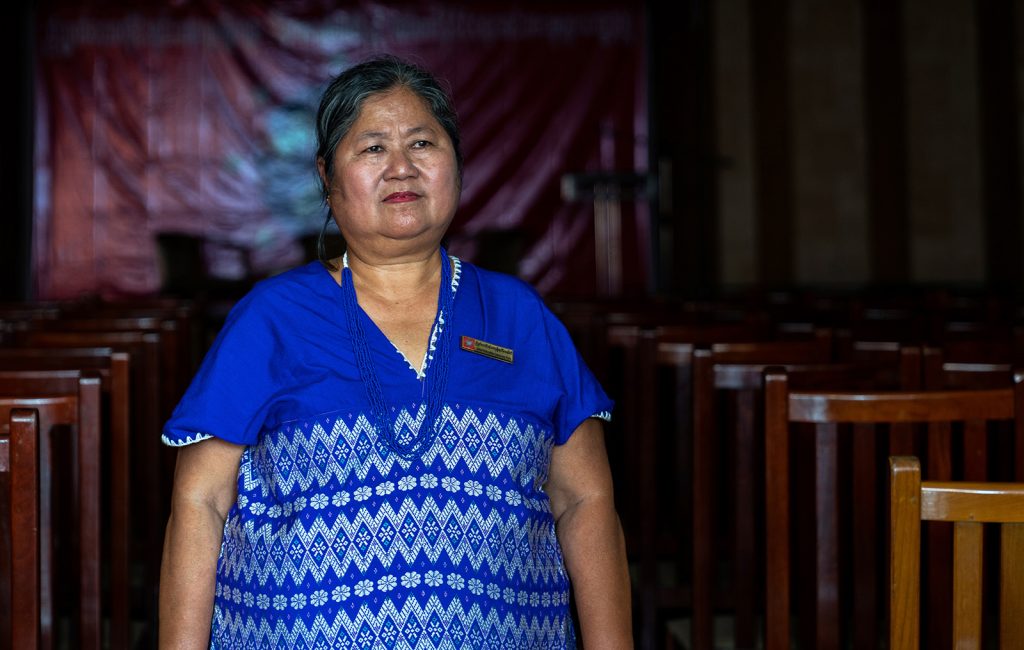
“The international community should act to make the military immediately stop the violations that are being committed every day against the protesters, as well as advocate for the release of all detained people and leaders. We need help with getting rid of this military coup as soon as possible, by sanctions or other interventions, and to pressure the military to abolish the 2008 constitution and draw up a new federal democracy constitution which guarantees ethnic minority rights,” said Jessica Nhkum.
Despite the risks it entails, KWAT and the DPWO are determined to continue their campaigns to end the military dictatorship. Both organisations are calling for an end to the coup and the abolishment of the 2008 constitution. They continue tirelessly to advocate for the creation of a federal democratic union, a democratic constitution, and for the release of all those who are currently unjustly detained.
“With the support of the international community, we hope that we can work together to end the military dictatorship,” said Naw Ohn Hla.
